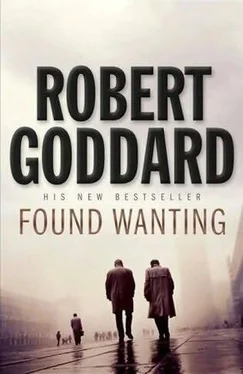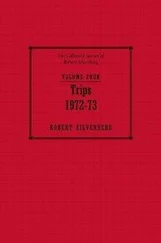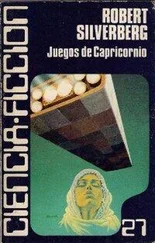‘Did I? Sorry. It must have… slipped my mind.’
‘Slipped your mind?’
Marty shrugged. ‘I’m not firing on all synapses.’
The blatant bid for sympathy was the last straw for Eusden. He should have remembered: there always came a time when Marty drove him beyond endurance. He shook his head ruefully and stood up.
‘Going somewhere?’
‘For a walk. I’ll see you back at the hotel.’
‘What about your pizza?’
‘The way I feel at the moment, I think it might choke me.’
‘Hold on. There’s no-’
‘Save it, Marty, OK?’ Eusden held up a hand in solemn warning. ‘Whatever you’ve got to say, I don’t want to hear it.’
They had planned to potter round Bembridge Harbour and The Duver before tea with Aunt Lily at her cottage in St Helens. It was a hot, windless day towards the end of August, 1971. The tide was exceptionally low – low enough, according to Marty, who claimed to have studied the tables, for them to walk out through the shallows to St Helens Fort. It was one of Palmerston’s Follies, a ring of forts on sea and land around Portsmouth, built to defend the home of the Royal Navy from attack by the French. All had long since been abandoned. The expedition was too tempting an idea to resist. And they made it out there with some ease. But a futile attempt to penetrate the fort delayed their return journey and Marty tardily admitted that he did not actually know when the tide was due to turn. Beaten back by the inrushing sea and lucky not to be drowned, they were eventually rescued by a passing yachtsman as darkness was falling.
It was an important lesson in a subject Richard Eusden was to become an expert on: the inherent unreliability of Marty Hewitson. Marty was generous, but seldom repaid a debt unless reminded of it. He was game for anything, but often failed to turn up when the time came. He was confident in everything he asserted or proposed, but the confidence he inspired in others was frequently misplaced. In short, he possessed charm in abundance. But even abundance can be exhausted.
The exasperation Eusden felt as he trudged down past the campus of Århus University towards the city centre was thus all too familiar to him. Burgaard had asked Marty if he thought him a fool and Eusden could well have asked the same question of himself. Except that he knew the answer, as Burgaard did not. Marty treated everyone in the same way, whether he thought them a fool, or a friend, or both. He was never going to change. Believing everything he said – or believing he had told you everything: that was foolishness.
Eusden went into a bar down by the riverside, where he ate a club sandwich, drank several beers and considered what he should do. Suspicion is a progressive disorder and he had started to wonder just how deceitful Marty was being. He could not have invented the whole thing. Werner Straub was real enough, as was Karsten Burgaard. They were on to something . But was it really connected with Anastasia? And was Marty really dying? Doubt had begun to weevil into Eusden’s mind on every count.
By the time he returned to the Royal, he had half-decided to tell Marty he was bailing out and heading back to London by the first available flight. As it was, he never got the chance. A woman was waiting for him in the lobby. With her iron-grey hair, raw-boned, weathered face and faintly old-fashioned outfit of loden and tweed, she looked like a well-to-do countrywoman of sixty or so on a shopping expedition to the city. And that did not turn out to be a misleading impression, although shopping was not high on her agenda.
‘Mr Eusden? I’m Elsa Støvring. I wanted to speak to Mr Hewitson, but he’s not here.’ This was slightly surprising. Eusden would have expected Marty to take a bus back into the centre and be at the hotel long before him. But there was, as he well knew, no legislating for Marty’s movements. ‘Could you spare me a few minutes? I need to speak to one of you. It really is rather urgent.’
Elsa Støvring was not a woman to be fobbed off and Eusden did not try. They walked across the square to a café for the urgent discussion she was clearly intent on having.
‘I’m not sure what you and Mr Hewitson are trying to achieve, Mr Eusden, but you’ve certainly succeeded in upsetting several members of my family,’ she began. ‘My brother Tolmar is a very private person and I hope you’ll agree he has a right to his privacy.’
‘We haven’t breached it as far as I know,’ said Eusden. He could not decide whether to be defensive or conciliatory. He badly needed to establish where he stood with Marty, but he was going to have to see off Elsa first.
‘You harassed my nephew in a bar.’
‘We spoke to him.’
‘You imposed on my brother Lars.’
‘We paid him a visit and left when he asked us to.’
‘Yes, well…’ Her dogmatic tone faltered slightly. ‘Lars is not the best judge of his own interests.’
‘But you are, no doubt.’
Elsa gave him a sharp look over the rim of her coffee cup. ‘The world changes, Mr Eusden. I’d never met a Lithuanian until about ten years ago. Now my husband employs six of them to manage his pigs. My brother Tolmar probably employs many more, in Lithuania as well as Denmark. Oh yes, the world changes. But we have the past inside us. And that doesn’t change. I never knew my parents. My mother died a few days after I was born. Blood poisoning. Five months later, my father died also. He cut an artery in an accident with a segl . What is it in English? A curved blade… with a handle.’ She finger-painted a question mark in the air, minus the dot.
‘A sickle?’ Eusden suggested.
‘Yes. A sickle. He was working alone a long way from the farm. He bled to death. So, blood killed both of them. I sometimes wonder if it really was an accident. Perhaps he couldn’t live without my mother. We’ll never know. Before I was six months old, they were both gone.’
‘We saw the eloquently inscribed tombstone at Tasdrup church.’
The hint of sarcasm caused a pursing of Elsa’s lips and a stiffening of her tone. ‘I want you to understand us, Mr Eusden. My grandfather was nearly seventy when my father died. He had to start running the farm again. Tolmar helped him as soon as he was able to. By the time he was sixteen, he was in charge. He has been ever since. The farm, the company, the family. He never really had a childhood. He’s always had… responsibilities. He got his engineering qualifications through evening classes. Life was easier for Lars and me. Tolmar made sure it was. We owe him a lot. More than we can ever repay.’
‘Do you remember Clem Hewitson visiting you at Aksdenhøj?’
‘Yes. He was a friend of Great-Uncle Hakon. That’s all I know.’
‘Maybe Tolmar knows more. As head of the family.’
‘Maybe he does.’
‘About that load of pre-war Finnish currency Great-Uncle Hakon’s housekeeper stole from him, for instance.’
‘You shouldn’t listen to Karsten Burgaard, Mr Eusden. He has no… sense of proportion. He had a nervous breakdown last year. Did he mention that to you?’
‘No. But the story about the Finnish currency’s true, isn’t it?’
‘I believe so.’
‘So, why do you think your great-uncle had millions of markkaa stashed away?’
‘I have no idea.’
‘And why did Lars try to stop the disinterment ceremony at Roskilde?’
‘It was a silly protest about Christiania. He can be very silly.’
‘Karsten doesn’t think that explanation stacks up.’
‘Naturally.’
‘Frankly, neither do I.’
‘Why are you so interested? Mr Hewitson claims to be researching the history of his family. What are you doing?’
Читать дальше












